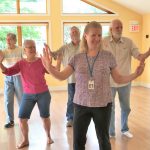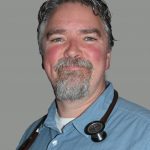By David McCormack, Grace Cottage Family Health FNP
Lyme disease is often in the news these days, so by now, most people know at least the basics about how it is contracted, what to do if you get a tick bite, and how to avoid it.
What about the other common tick-borne disease—anaplasmosis?
The Vermont Department of Health says that anaplasmosis is the second most commonly reported tick-borne disease in Vermont, and it’s on the rise. In 2011, there were only 10 cases of suspected or confirmed anaplasmosis. In 2016, there were 201.
When not diagnosed and treated properly, over one-third of those with the disease end up hospitalized, and anaplasmosis can in rare cases be fatal, especially for those with compromised immune systems. While less than 1% of people infected die as a result, this is a disease to take seriously.
One of the hardest things about diagnosing this disease is that, unlike Lyme disease, there is no telltale rash, and the symptoms are fairly common: aches and pains, headaches, chills, fever, fatigue. So how do you know if it’s anaplasmosis?
Read More...






